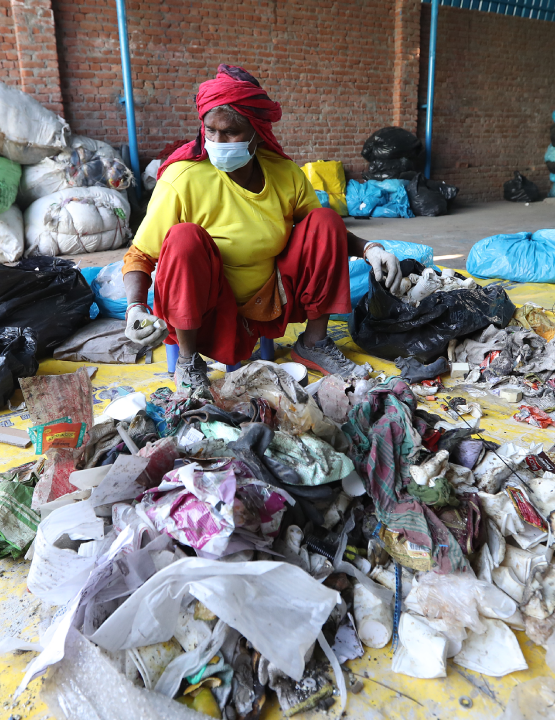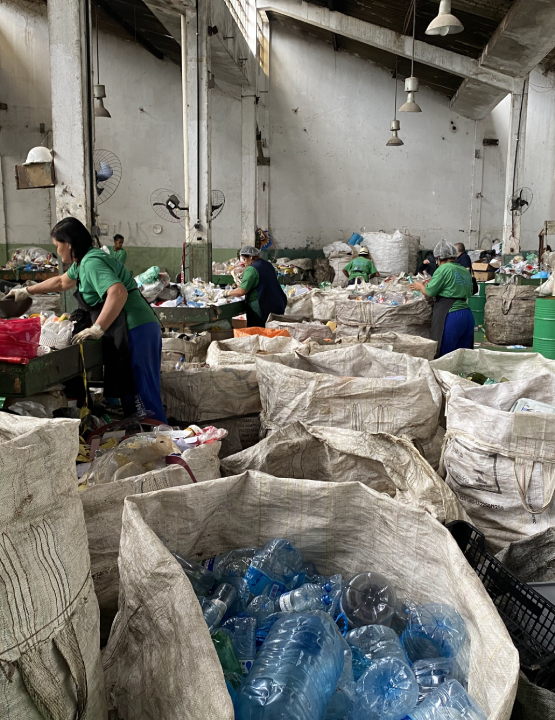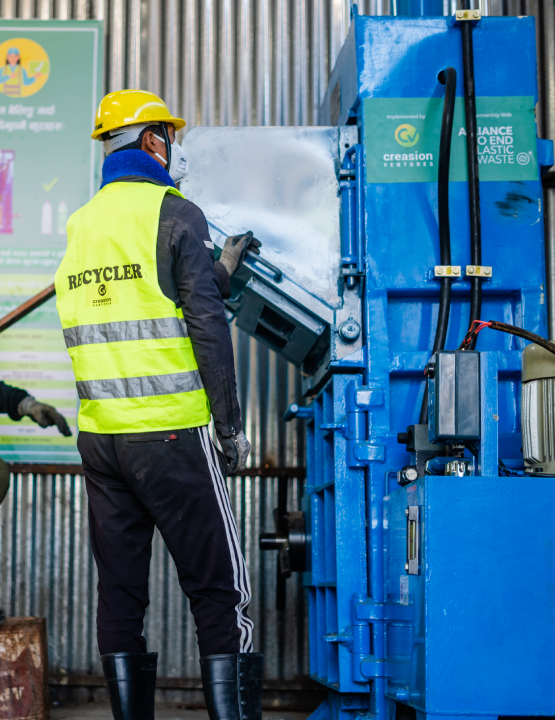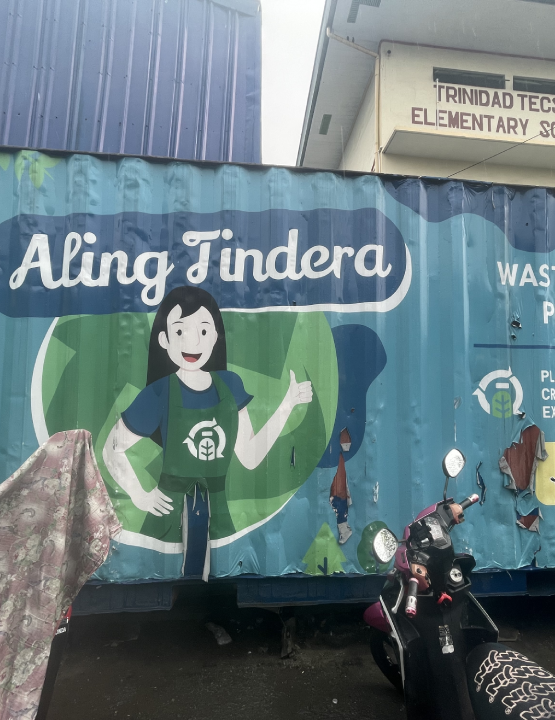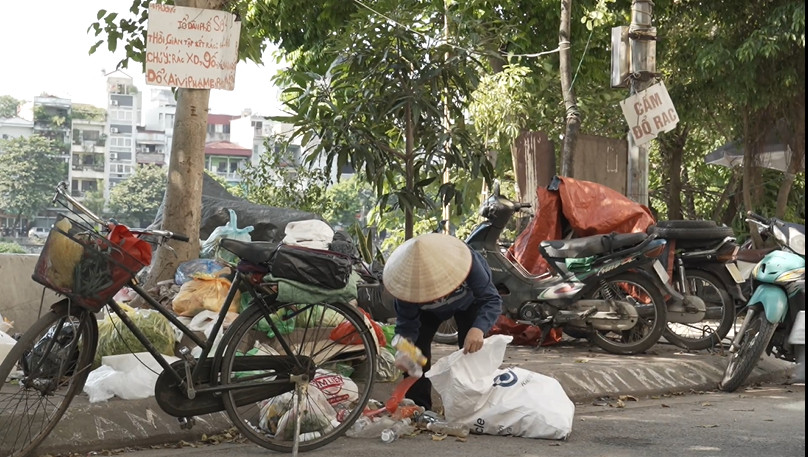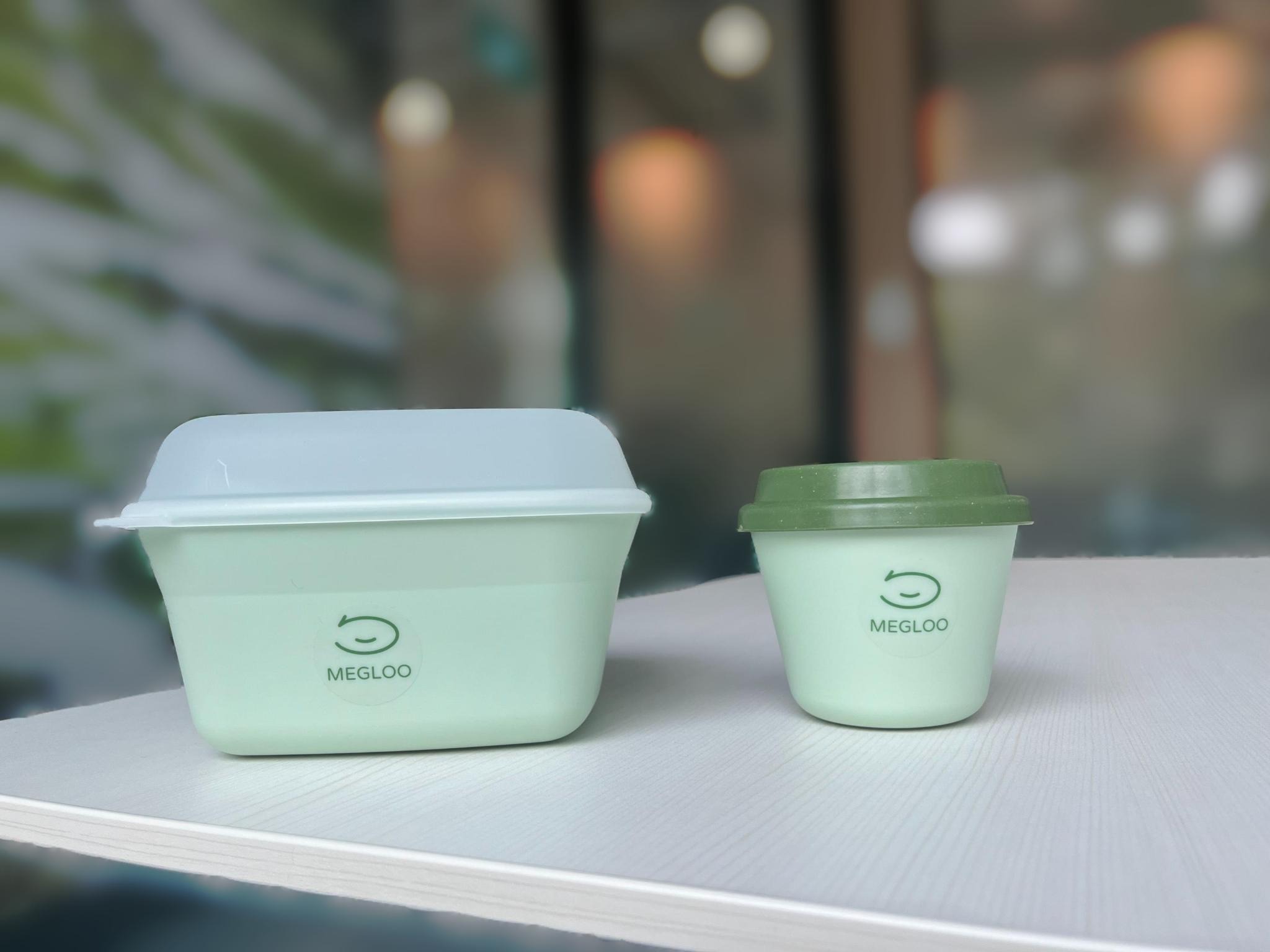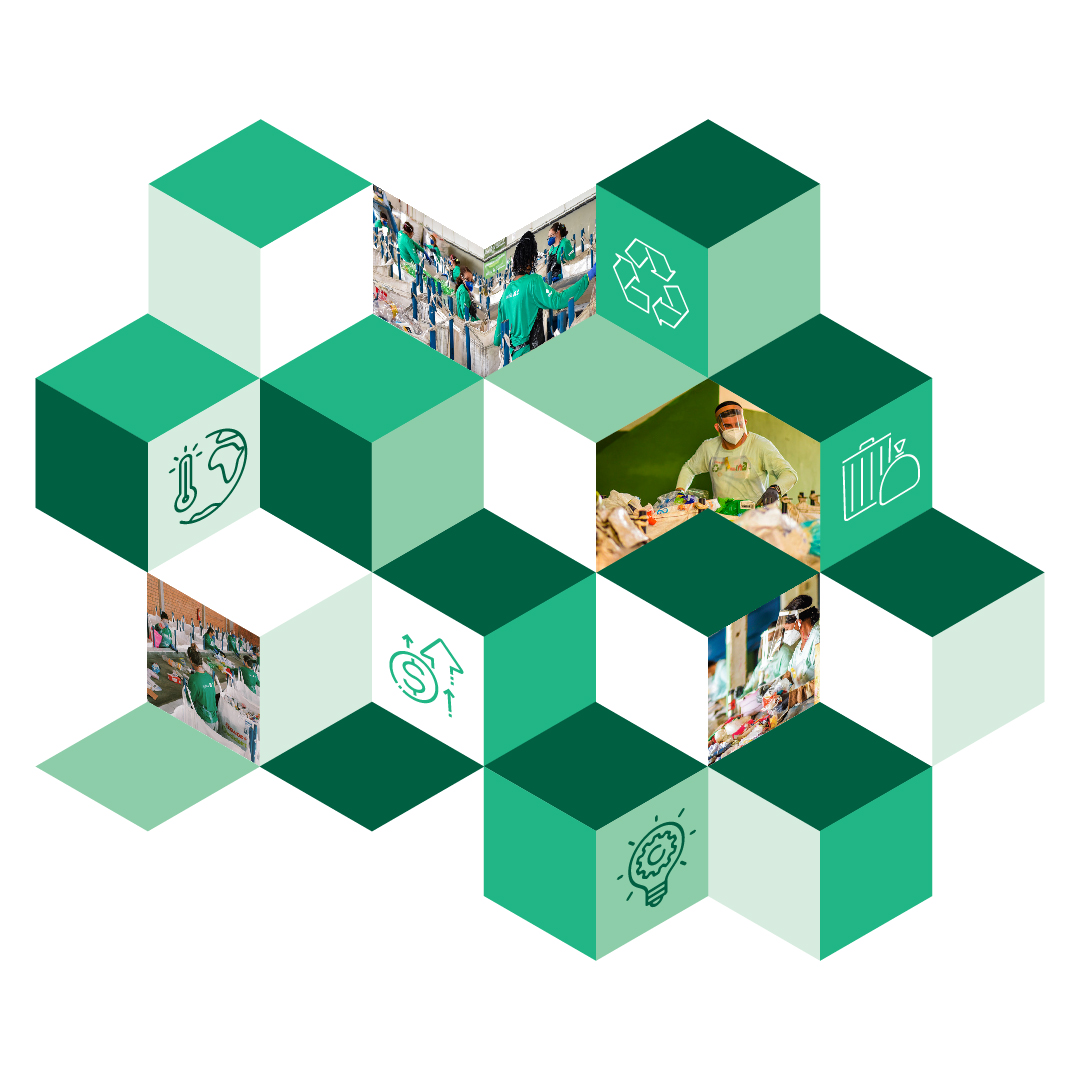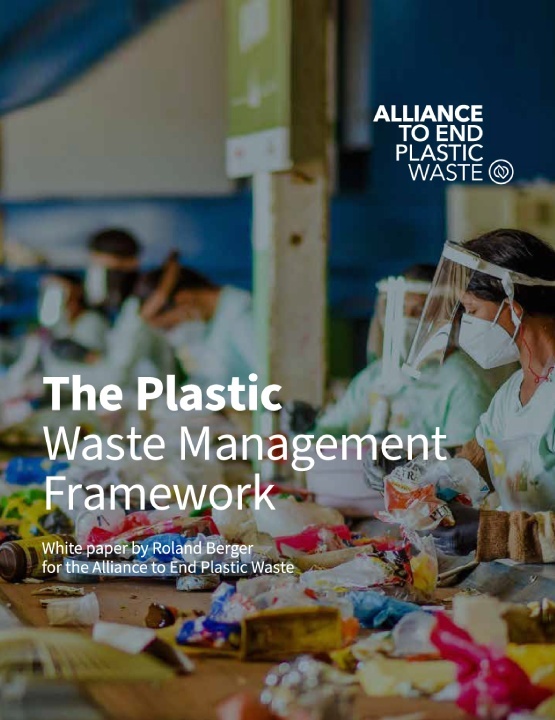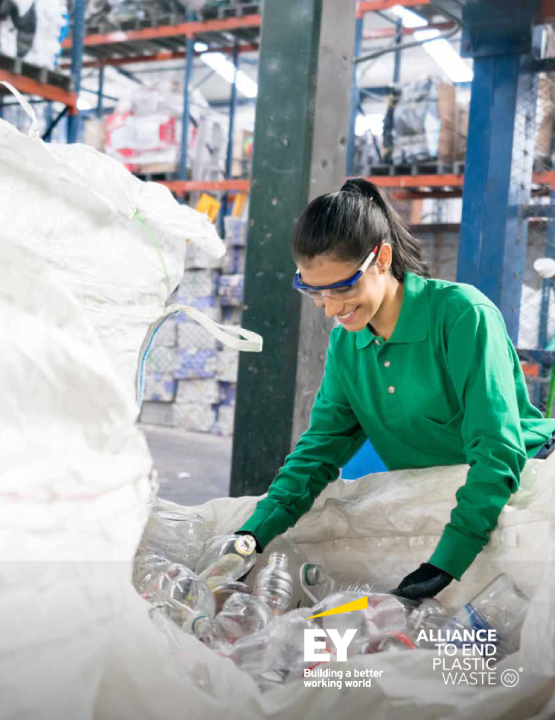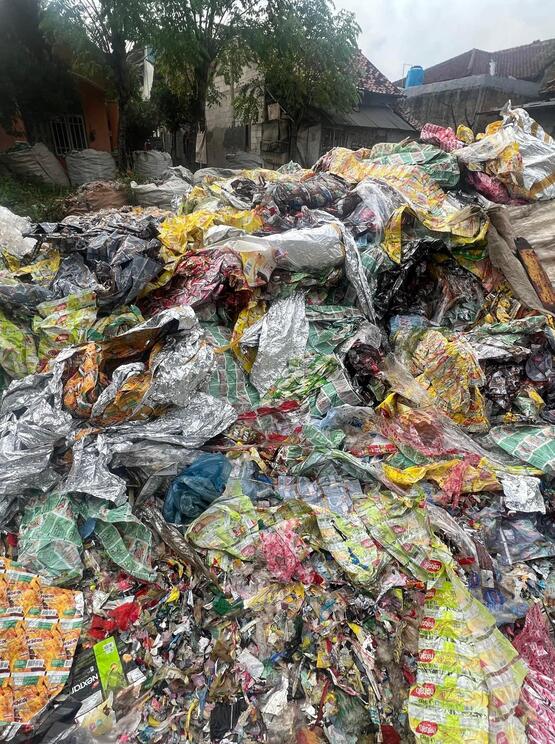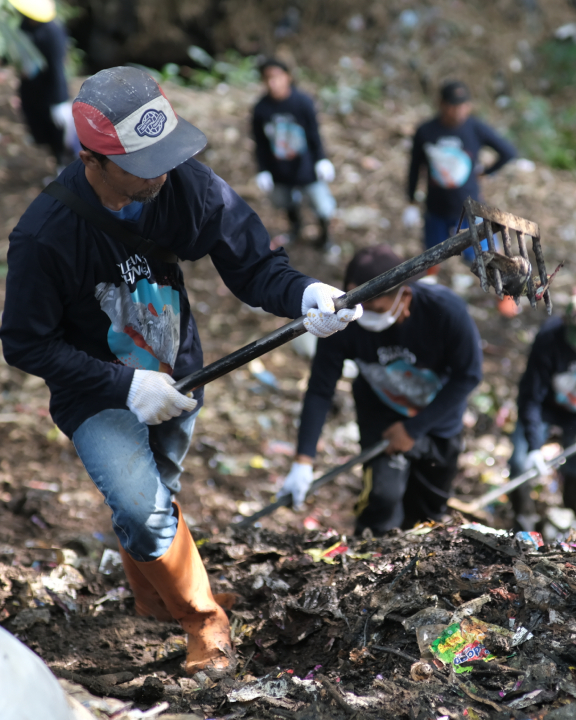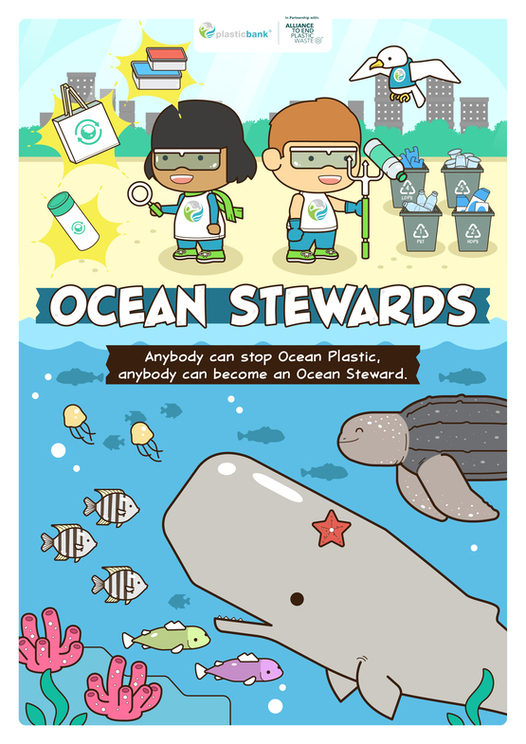The Alliance worked with Greencore in Indonesia to incentivise pengepuls and their waste pickers to collect and redirect flexible plastic packaging waste towards circularity by addressing a key barrier – cash flow.
Gresik (East Java), Indonesia
SEArcular Ocean Bound Plastic: Turning the tide against flexible plastic packaging waste (FPPW)
SEArcular Ocean Bound Plastic incentivised locally-run waste collection centres and waste pickers to collect flexible plastic packaging waste in Gresik, Indonesia, keeping them out of water bodies and bringing them into circularity
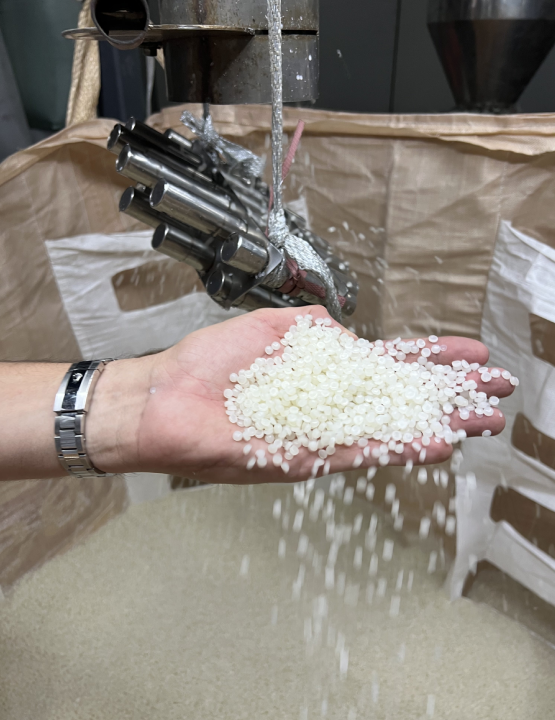
Overview
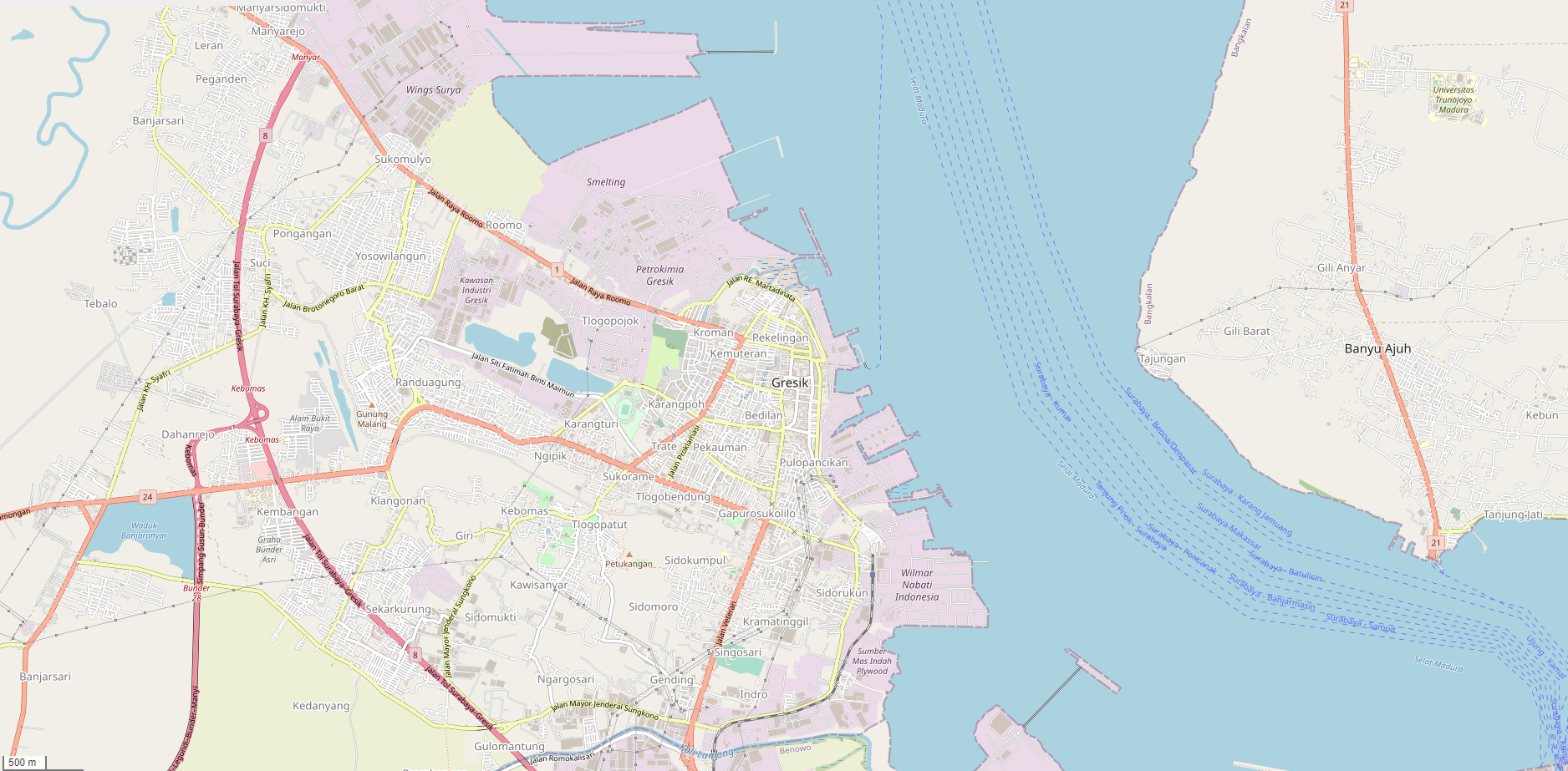
Location
Gresik (East Java), Indonesia
Partner
Greencore Resources
Achieved
- No. of junk shop involved (pengepuls): 16 and waste aggregators: 6
- Flexible packaging plastic waste collected (Jun - Sept 2022): 307 tonnes
- Flexible packaging plastic waste recycled: 299 tonnes
Getting Gresik’s Waste Workers to Pick Flexibles
In Gresik, East Java, waste workers often rid the streets of discarded PET bottles, cashing them in at pengepuls, or collection centres. The problem is that flexible plastic packaging, from plastic bags to sauce sachets, usually gets left behind. The reason: pengepuls prioritise PET, due to its higher market value and demand, so there is little incentive for waste pickers to target lower-value plastic waste, making it especially hard to bring it into circularity.
Greencore Resources figured out the pain point: for the pengepuls, flexible packaging plastic waste made little economic sense, given their low volume and time needed to accumulate enough to fetch a reasonable price. Waste pickers had to be paid immediately, and the pengepuls did not have the luxury of cash flow.
With the help of an Alliance grant, Greencore, which buys plastic waste and turns it into recycled pellets and flakes, helped bridge that gap.
Under its SEArcular Ocean Bound Plastic initiative, it offered pengepuls a much-needed cash float to incentivise waste pickers to collect everything from plastic films and bags to flexible food packaging. Without the pressure to encash it right away, the waste could be sorted and aggregated until it could be profitably sold. This working capital could be rolled over, allowing the collection of flexible plastic waste to continue sustainably.
It also meant that pengepuls could pay waste pickers fairly and reliably, resulting in a steady stream of flexible packaging to Greencore. Prices could remain stable and trade volumes could climb, while redirecting this omnipresent waste stream away from water bodies, and ultimately, the sea.
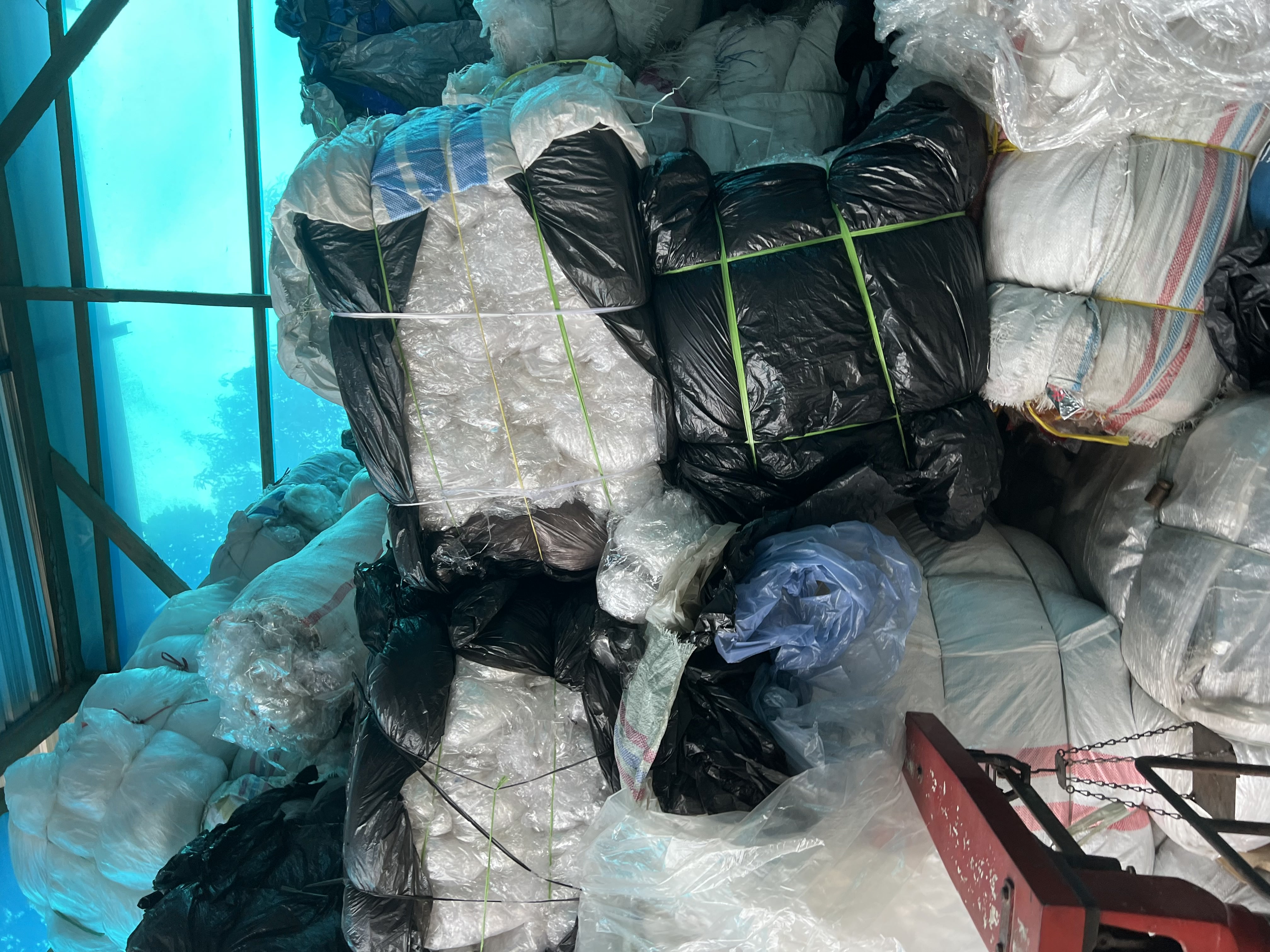
Between June and September 2022, waste pickers collected 307 tonnes of flexible packaging plastic waste, exceeding the 300 tonne target. Almost 300 tonnes were bought by Greencore and recycled into Ocean Bound Plastic (OBP) certified rLDPE and rLLDPE, raw materials for the manufacture of plastic sheets, bags, and bin liners.
Since the close of the project, the pengepuls have continued to sell these plastics to Greencore, and aimed to collect 700 tonnes by the end of 2022, and 1,200 tonnes by the end of 2023.
Every year, an estimated 346.5 KT of plastic waste meanders through Indonesia’s waterways en route to the sea – a significant portion of which is low-value plastic.
SEArcular presents a way in which targeted solutions, like working capital, can allow existing waste collection networks and infrastructure to be better leveraged to net them, and make new streams of feedstock economically feasible to collect.
In countries like Indonesia, where low-value, single-use plastics remain a major concern, this can make a tangible difference in keeping plastics out of the environment, and redirecting them towards circularity.
